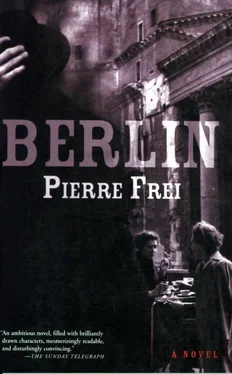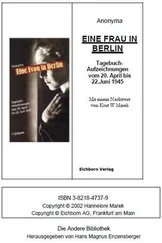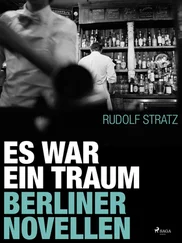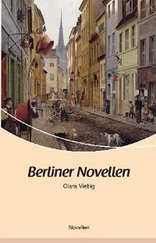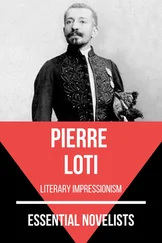'Captain Ashburner, Military Police.' The American was tall and lean, with smooth, fair hair. His alert, intelligent gaze rested on the inspector. And this is Sergeant Donovan.' The sergeant was a stocky man with broad, powerful shoulders and a crew cut.
Dietrich raised the dead woman's left arm. The glass of her watch was shattered; the hands stood at ten forty-two. 'Probably the time of death,' he commented, beckoning to the stationmaster. 'Who was on duty here yesterday evening, about quarter to eleven?'
'Me, of course,' said the man in injured tones. 'Until the last train, at 22.48 hours, and then again from six in the morning. They hardly give us time for a wink of sleep.'
'Were there many passengers waiting for the last train?'
'Couple of Yanks with their girls, two or three Germans.'
'Was the dead woman among them?'
'Maybe, maybe not. I had to clear the 22.34 to Krumme Lanke for departure. You don't look at the passengers separately. Nobody kind of caught my eye. Only that weirdo with goggles and a leather cap. Like a sky-pilot off on a tobogganing trip, I thought.'
'Goggles and a leather cap?'
'Well, kind of motorcycling gear, I'd say. But I didn't really look close. The lights at the far end of the platform have been a write-off for weeks.'
'So he was standing in semi-darkness.'
'The only one who was, now you mention it. The other passengers were waiting where the lights still work.'
'Did you see him get in?'
'Nope. I have to be up at the front of the train to give the guard the signal to leave. Now excuse me, here's the eleven-ten.'
'Hey, Kraut, take a look.' The MP sergeant handed Dietrich a shoulder bag. 'Not an American, one of yours. Karin Rembach, aged twenty-five. Works in our dry cleaners' shop over there.' He pointed to the shopping centre on the far side of the fence. 'I guess her boyfriend bought her the shoes and nylons in the PX. Man called Dennis Morgan, stationed with the Signal Corps in Lichterfelde.'
Klaus Dietrich opened the bag. Her ID, with a pass for a German employee of the US Army, indicated where the sergeant had gathered his information. He also found a note bearing the soldier's name and his barracks address. 'I'd like to ask this Morgan some questions.'
A Kraut wants to interrogate an American? Don't you know who won the war?' barked the sergeant.
'I know the war's over and murder's a crime again,' Klaus Dietrich replied calmly.
For a moment it looked as if the beefy Donovan might take a swing at him, but the captain intervened. 'I'll question Morgan and send you the statement. In return you can let me have the results of the autopsy. A Medical Corps ambulance will take her wherever you like. Goodbye, Inspector.'
Sergeant Franke watched the Americans leave. 'Not very friendly, that bunch.'
'Privilege of the victors. Franke, what do you think about this man in the goggles?'
'Either a nutcase, like the stationmaster says, or someone who doesn't want to be recognized. Inspector, why do they keep calling us Krauts?'
Klaus Dietrich laughed. 'Our transatlantic liberators believe we Germans live on nothing but sauerkraut.'
`With pork knuckle and pea puree.' A note of nostalgia entered the detective sergeant's voice. A siren came closer and died away. Two GIs with Red Cross armbands carried a stretcher down the steps. The morgue in Berlin Mitte had been bombed out and was now in the Soviet sector, so Klaus Dietrich had the corpse taken to the nearby Waldfrieden hospital, where his friend Walter Mi bius was medical superintendent.
'I'll do the autopsy later,' said Dr Mobius. 'I have to operate on the living while daylight lasts, and then until they cut off the electricity at nine. If you really want to watch the autopsy, we'll have the power back at three in the morning.'
A young man clad in the best pre-war Prince of Wales check suiting nonchalantly lit an extra-length Pall Mall outside the U-Bahn station. Ben looked enviously at the thick crepe soles of his suede shoes. He knew the man slightly. Hendrijk Claasen was a Dutchman and a black marketeer. Only a black marketeer could afford such a sharp suit. Ben wanted a Prince of Wales check suit and shoes with crepe soles too. He imagined himself appearing before Heidi Rodel in his made-to-measure outfit, on soles a centimetre thick. Then it would be curtains for Gert Schlomm in his silly short lederhosen.
The boy walked home from the station, glad to have avoided his father. Papa would have asked questions. In this case, he would have wanted to know why Ben was finding dead women on the U-Bahn instead of being at school. Papa had a quietly sarcastic manner which hit the vulnerable spot.
Not that Ben had anything against school in itself, only its regularity. The chaos of the recent past had brought with it not only fear and terror but adventure and freedom too, and he was finding it difficult to get used to an ordered existence.
He made for the back of the house, went into the shed at the end of the garden, and fished his school bag out from under a couple of empty potato sacks. His grandmother was weeding near the veranda. She had dug up the lawn months ago to plant tobacco. The district councillor was a heavy smoker and she dried the leaves on the stove for him, filling the house with a horrible smell, which was the lesser of two evils. Hellbich was unbearable when his body craved nicotine.
'There's a special margarine ration at Frau Kalkfurth's. Ralf's down there queuing already. Go and take over from him, Ben — your mother will relieve you later. She's gone to the cobbler's. With luck he can repair your brother's sandals again — the poor boy's going around in gym shoes full of holes.'
'OK.' Ben climbed the steep stairs to the attic room he shared with Ralf, and tossed the school bag on his bed. Before going downstairs again he put the empty cigarette packet away with the razor blade in a drawer. He'd work on it later.
There was no one in the kitchen. He pulled out the left-hand drawer of the kitchen dresser, reached into it, pushed the bolt down and opened the locked cupboard door from the inside. Inge Dietrich kept the family's bread rations in that cupboard: two slices of dry bread each in the morning and again at lunchtime. They ate a hot meal in the evening.
Ben hacked himself off an extra-thick slice and clamped it between his teeth, returned the loaf to the dresser, shut the door and bolted it again. Then he closed the drawer and went off to take his little brother's place in the queue. On the way he ate his looted slice of bread in bites as small as possible. That way you prolonged the pleasure.
Frau Kalkfurth's shop had once been the living room of a terraced house in the street known as Am Hegewinkel, 'Game Preserve Corner'. The surrounding streets, all with brightly painted houses, were named Hochsitzweg, Lappjagen and Auerhahnbalz, suggesting images of hides, hunting and capercaillies. A local mayor who was a keen huntsman had given them these names sometime in the past. The garage built on to the back of the house was used to store goods for the shop. It had once held the family car, for the Kalkfurths had owned a big butcher's shop in eastern Berlin. The butcher's shop had long been in ruins, and the car, an Adler, was only a memory now.
The widow Kalkfurth, having worked in a similar line before the war, was granted the coveted permit to run a grocery store after the fall of Berlin. Now, her former trainee butcher, Heinz Winkelmann, stood behind the improvised counter, while she oversaw the little business from her wheelchair, sticking her customers' ration coupons on large sheets of newspaper in the evenings. Someone from the rationing authority collected them once a week. She lived alone in the Am Hegewinkel house: discreet gifts of butter, smoked sausage and streaky bacon to the people in the Housing Department saved her from having the homeless billeted on her.
Читать дальше
